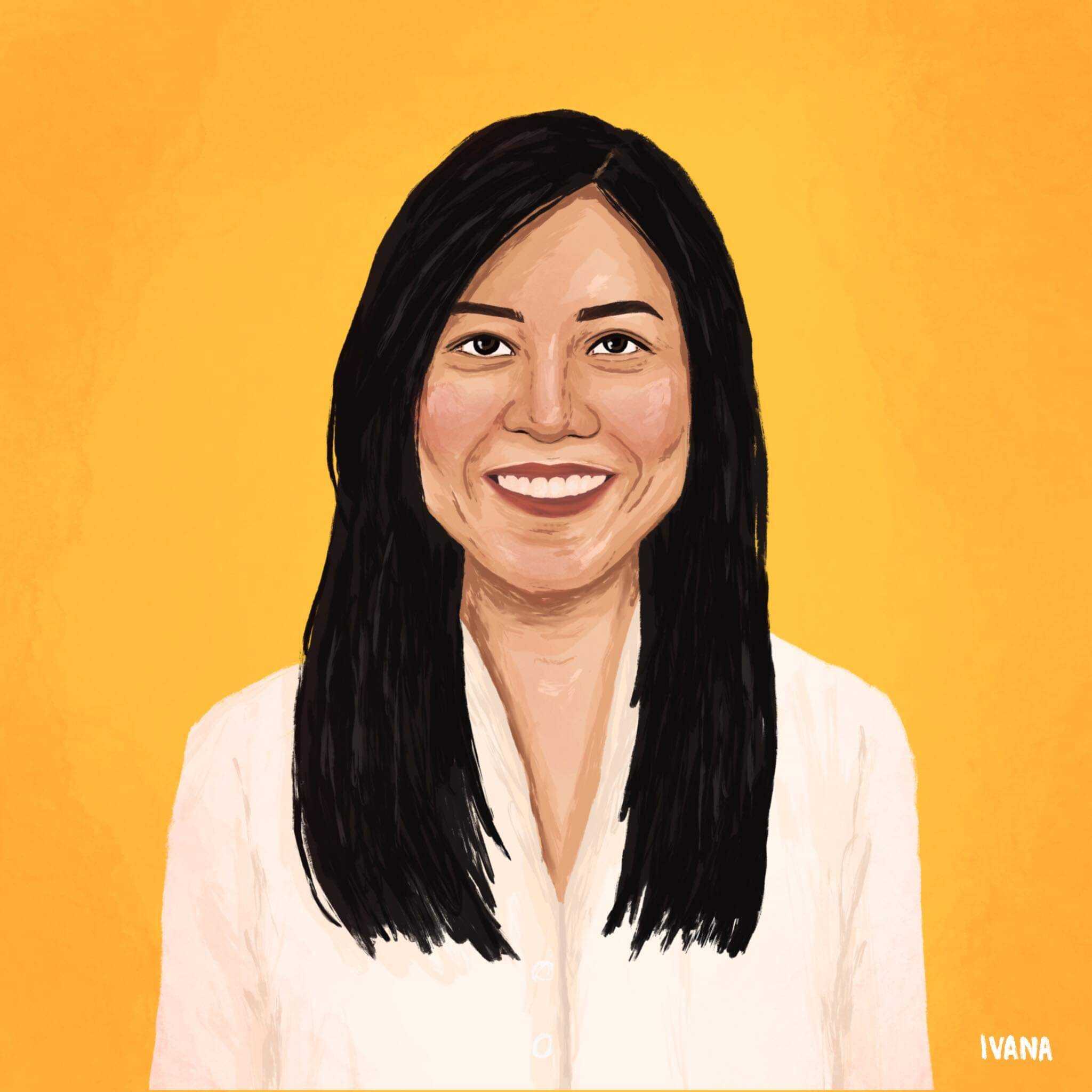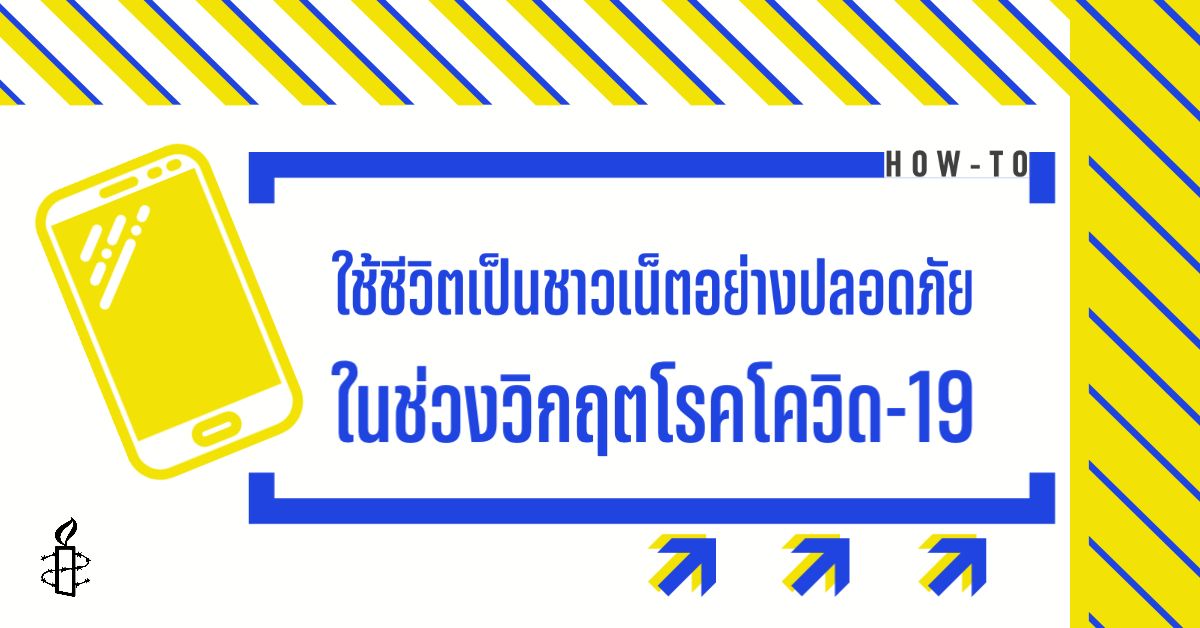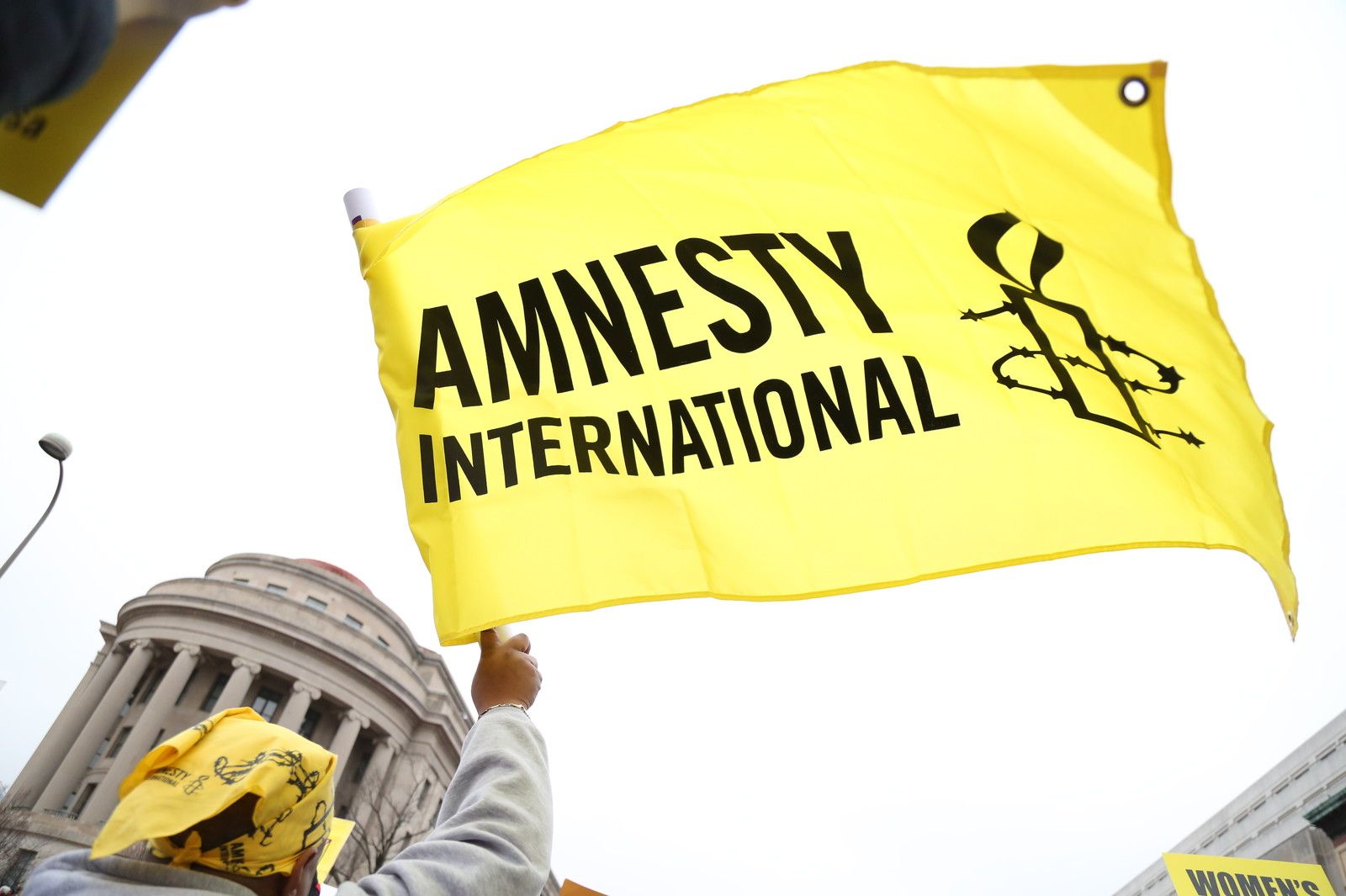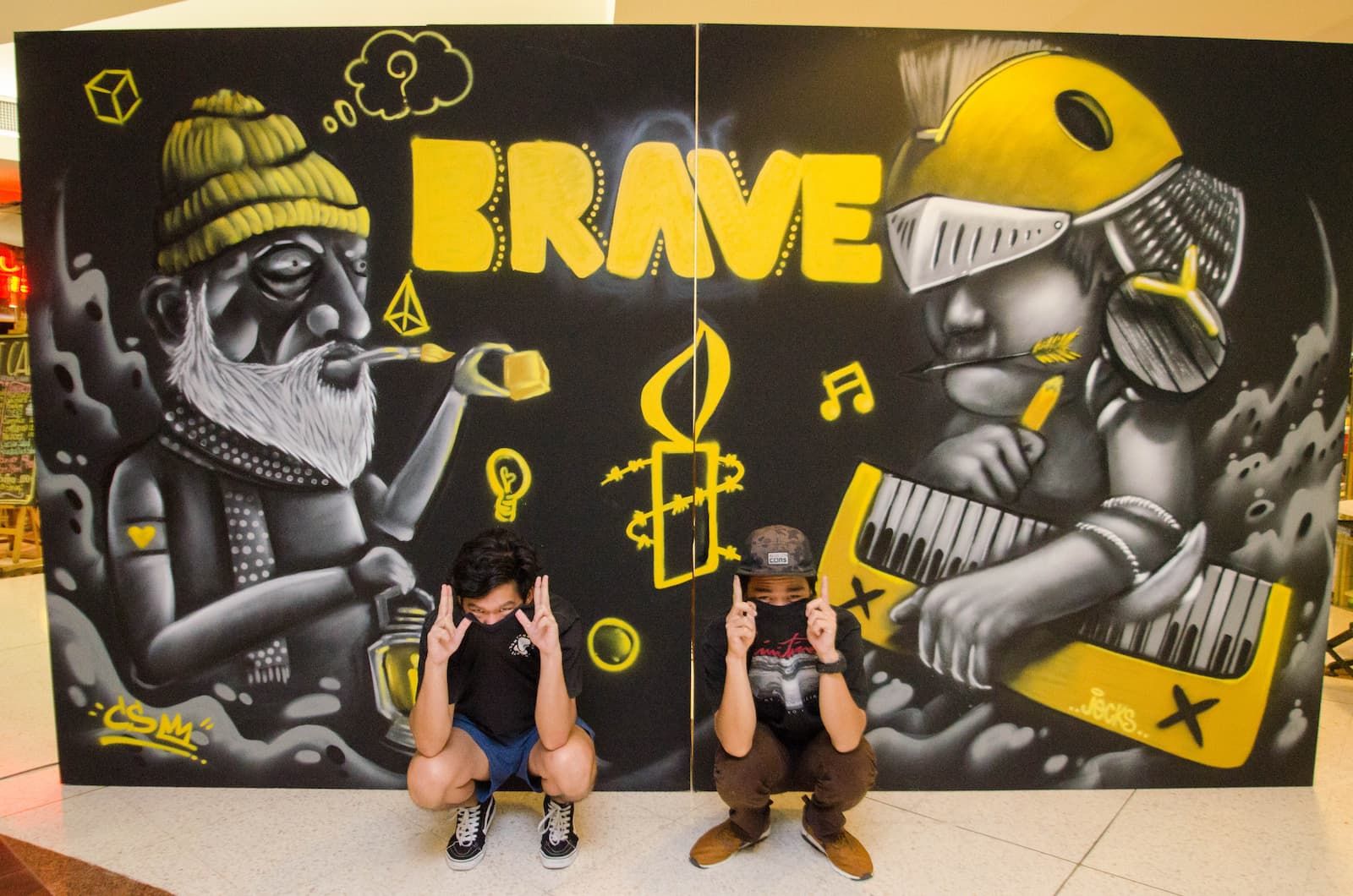#PortraitOfWHRDs : Busayapa Srisompong
27 October 2020
Amnesty International Thailand
Since I went to work on the ground, or talk about the process of accessing justice in various forums, there was both the issue of sex and the issue of age. If I am not old enough, or have not yet completed a doctorate, important people will not really listen to me much. So I feel that when I talk about access to the judicial process, whether it concerns migrant workers, or the cases of child and female victims, ever since 2017 when I started work and went into the field, I know that important people are not listening, or do not give that much weight to what I say, even though I collect information from people on the ground, and even though I really work at the grassroots level.
In cases of violence, sometimes I also go to the police station with the victim. Even though I view it as a criminal case, a case of violence like this, the proper process should be the police, the prosecution and the court. It's not necessary to have a lawyer. The case should go through normal channels. But as the victim is fragile, and in need of empowerment, so there needs to be someone to support them along the way. Sometimes I also have to go with the victim. The way the officers speak to us makes us feel bad. They speak as if this is a trivial matter. Or sometimes there are questions about who I am and what stake I have in the case. Why do I have to help them? This is what I found at the practical level. I also wonder why it is like that. I wonder if I was a man, would they use words and gestures with me like that?
Some of the questions are like, is it because I am a woman that I am petty about these cases? Am I emotional about these cases because I am a woman? It makes me wonder too if I am too emotional, but later I think it isn’t. I stand for what is right.
When I work on a case, or even my own case, I try to follow the correct procedure as much as possible. But sometimes the system doesn't work. For example, I have had cases of online harassment, or sexual harassment, which is covered by the law, but as soon as you try it, it turns out not to be covered, or the officers say nothing can be done and the case gets diverted away from the judicial process. If I use a fast-paced method, for example, someone says this kid was threatened, should we take this up with the perpetrator ourselves? No, we can’t. I do not agree with vigilantism. I think I am one person who stands on the principle of correctness and justice, and there must be real justice that is accountable, not biased justice.
I try to explain that when there are cases of domestic violence, violence against women, or rape, for example, since I have been working on these cases I found these cases are fragile. The victim has been treated badly. If we use the method of picking apart the evidence like lawyers in general, who have to ask questions to find fault, it’ll be just like the victim being raped again. Just how many times can the victim tell the story over again. So I tried to campaign, when we talk about equality, for the need for society to be aware of groups that are vulnerable to the point where they are not equal.
In Thailand, everyone would say that women and men are already equal. But society makes the comparison on the principle of sameness or equality, but forgets equity, forgets that each person stands on steps of the ladder that are not equal.
Once I feel that I am a woman who speaks out that this is a patriarchal culture, people will immediately get angry. I don’t know what’s with the word patriarchy. People get angry every time it comes up. Patriarchy does not mean that men are bad or anything, but it comes from the system of fatherhood, a system where fathers govern children. What we criticize is the framework of masculinity that destroys not just women and children, but also destroys men themselves.
I must first give an explanation that gender-based violence is an umbrella term that is larger than domestic violence, which can happen to every person, every gender, even men, like the issue of toxic masculinity, for example. But everyone must not forget that while men can be victimised, women, according to statistics and empirical research, suffer the most. Some people are offended that I work with and speak about only women, but I must insist that women are most vulnerable to violence, so resources or concern are often directed at women. It is like people who are about to fall off a cliff, when we have limited power to help. We have to hurry to save the most vulnerable.
Sometimes people share my news. Some people come to interview me. I only talk about work, I do not disparage men, or use the word patriarchy at all. But there will be people coming to comment that it’s the feminists again. What? Sometimes I go back and check. My content does not aim to attack anyone. I was relatively neutral before because I worked on cases for men and groups of boys who were vulnerable. I don’t really talk about patriarchy very much, because I fear misunderstanding or ignorance. Even though I already said that violence can happen to everyone, there are still people who are offended.
On gender-based violence, there is one group who is doing something about this. Currently, there are around 800 members of this group around the world, who are experts who design various tools for this issue, led by UN agencies and international humanitarian organizations. People still say that it is difficult to find men who really work on this issue. Everyone who works in this field, no matter how many decades, will always face this question. What about men? The thing is, after asking the question, nothing happens. The question instead is, after we gave information that these are the statistics, these are the tools that you can use, did you choose to do anything? No. Most people just ask the questions and once they’ve asked, silence. A question like this is what we call “what aboutery,” just asking “what about me?” It is not constructive to ask a question just to attack. This is what women face, no matter what. I don’t know why. It's like when we work to help the victims, they just feel irritated.
To access the judicial process, and to fight in Thailand, causes injury. It is exhausting, both mentally and physically. When I talk, I look if the case has a chance. If it really has no chance, then I must focus on taking care of myself first. Get my strength up first. I would also like to work on legal advocacy, on making changes to the law.
I’m not sure if IO is following me or not. But there was one time where someone logged in to my Twitter account and said it was from Bangkok. I was like how did they get in? I wasn’t even in Thailand right then. So I changed my passwords for everything on the internet. I have been trained in Human Rights Defender's security, or online security. I studied to one level. But I never thought I would need it because I was not a famous person. But later, I started using a VPN, changed my password, and I started talking to my friends in through more secure channels.
If it is a man who talks about claiming rights, he will not ask me at all. I've seen times when male activists talk about the suicide rates of men, and violence against men. Everyone will be like, yes that is right. No one is going to ask like, what about women? Because women do not feel the need to talk about women because it is clear that it’s an issue about men.
When I read the news or when I see a man talking about his issue, I sympathize. I have never had the feeling that I have to interrupt him, because I felt that I have brothers, I have male friends, one day I may have children. This thing, I encourage everyone to recognize. There is still a bias when it comes to issues between women and men, and these things come from the teaching in society.
For example, the picture of a woman reflected in the Thai justice system. Assume the husband assaults his wife. Now try how the Supreme Court hears the case. Look at the opinions of scholars in the field of justice. Most will use the reconciliation system, be kind to the man and use the excuse that men are just like that, they have stress, drink alcohol, don't put them in jail. Let him go to rehabilitation first. It’s better to have the wife reconcile with him. Mediation measures will be used whether the husband is the perpetrator or not, or there is even pressure that there’s no need to report. They will be back together soon. And then there were cases where the woman filed reports 3-4 times and they still received no help, and finally she got killed or seriously injured.
We will always see that if a man does it, often there is an automatic attitude that he might have some sort of problem, so it is better to use a remedial system. If you ask me if I agree with a process of harmony or not, I agree, because restorative justice is used to prevent overcrowding in prisons. But if it is to use the mediation method, it should be used equally or not to silence the victim. But the problem is Thailand likes to use it to silence the victim.
When there are cases where a woman does something, she is often branded as 'evil' right away. In academia, there is a theory about the evil woman. If a woman is assumed to be a perpetrator, a convict, or an abuser, the interpretation of that woman’s role will immediately be seen as more harsh. That woman will immediately be seen as bad.
Suppose we saw a national leader who was male do something bad. People would say he had a character like this, it's funny. But if it was a national leader who was female, who did something no worse, or did something that looks really harsh, this woman would suddenly become a bitch and a bad woman. So we can see that if we really talk about equality, why can't you put together a system of reconciliation, which we have tried to push for a long time, to be used with female offenders? In this case, it means abuser, whether it be a woman, a man, or a mixed gender. Why, when restorative justice is introduced, is it not applied in a fair and equitable manner, rather than used as a double standard? And why are the victims silenced?
A woman who had been assaulted by her husband for more than 10 years, for all her life. One day, this woman was angry and made a mistake and killed her own husband, or in fact severely injured her husband to the point of making him disabled. This woman was immediately jailed for more than 20 years, 16 years, because the court did not take the past into account, did not take the woman’s experience into account, or the experience of those who have been victimized for more than 10 years. This makes me angry, just talking about it makes me angry. You can read more at the Foundation for Women.
At first I thought that I did not have to continue to study. I work in the field, I should already know the intersectionality of the vulnerability of women. Because I work with really vulnerable people, I think I don't have to study anymore. Working and making money is better. But I also think I should study, in case I write a research study or some piece of work that will make others listen to me. I don't know if I have to be an academic first before they will listen to me. Because sometimes academics talk until their voices are hoarse, and they will not listen anyway. But I want to do more academic work in this way and penetrate into matters that people rarely talk about, for example, the issue of reconciliation justice that we talked about. There is not much critical research. So I would like to write academic work on this so that it is accessible and easy to read, and to show people another side which is the negative effect of mediating in cases of violence.
I call myself a Human Rights Defender before I call myself a feminist.
Human Rights Defender, I like this expression, I feel it is a powerful expression. Women Human Rights Defender, I like it too, because I feel that the word ‘woman’ has empowerment. In know that women have similar experiences, either catcalling, or discrimination, or something else, from childhood until they grow up. Every time we do a Youth Forum, I make life graphs, and when I go to teach, I will let all the children reflect on their own life experiences. There’ll be some kind of experiences in gender frames that we all are exposed to as well, and we will have compassion for each other, so people will come out to protect their rights. The people who come out to work on their rights, I believe stand on the principles and respect the dignity of the people. Many people have been wounded, so they have a heart that sympathizes with the case. They come out and join the movement not because they want to be an angel or Miss Thailand. We come out to work because we see injustice in society. And we will always hear people who come out to work say 'I don't want anyone to be hurt like this again', so they want to build change.
The term Women Human Rights Defenders is not just the women who are angry with a world that is unjust. There is anger, of course. But for us, anger is a surface feeling. Actually, in the end, it is that everyone stands on the principles they believe in, they uphold and will fight for. We feel good about this term, it's powerful and strong, and in its strength we can see the wounds that are the experience in building change. And everyone is a survivor. It's not wrong that we are someone who has experienced something, because no one is born perfect. I think it would be very dangerous to think that you are perfect.
By nature I don't like to see anything that is unfair. When I’m at work it shows me the whole system, where the Thai system has abuse of power at all levels, from top to bottom and bottom to top. When I was physically assaulted by my partner and made a SHero page, I always believed that obtaining justice shouldn't be difficult because I work on access to justice. I felt that by the time I could get myself to walk into the police station, it needed a very high level of energy because my self-confidence was gone to a certain extent. The pain, the regret, the heartbreak are still there. And when I took myself to the police station, the second that the police didn't care or said 'you don't have to press charges, it isn't that much’. right then I was bewildered. And I remember that the first time I came out of the police station I was crying, thinking why it was like this. In the end, I decided to go back and fight again, and fight until the police opened the case. The day the judgment came out, I was still crying. That was a relief to some extent. Another part is regret. Why is it so difficult? I was so tired you could see the confusion in my mood at that time.
At that time I came to know a group of women who were transnational, stateless and who had suffered domestic violence. They were doing strengthening activities. So I agreed to teach them law. When I finished teaching law, there was nothing. But I started to realise people didn't dare to share their stories. So I told my own story for the group to hear. When I finished telling the story I could see that everyone started raising their hands. Even the interpreter at that time was crying, because it turns out that everyone has faced this problem but is too afraid to talk. So I realized that there are two important keywords: Knowledge, that is, knowledge of the law and how to get help. Another word is empathy, to make the other person feel that I can speak about it without being judged. So I got up to do this. And when I do it, I’m still working on the basis of human rights and justice as before, because that's what we work for and it's undeniably related. For example In the Universal Declaration it says 'No one shall be subjected to torture', but in reality, women who have been subjected to violence did not have any human rights, and they did not exercise the right to this protection. This is a very basic human right, because these women are not safe at all. And people who have been subjected to these acts of violence are also affected in their work. In most such cases they won't be able to work or if they have to go to the hospital, they need to use their work day, their career is affected, their right to work happily was lost. So we have to say more about this, and talk about access to justice because that is the weakest point of the judicial process.
Even in the case of a woman who is raped, she will be questioned repeatedly, because Thailand is still stuck in the frame of having to be the perfect/classic victim. The police still think that women have to walk up to them with their shirts torn, dishevelled, wounded, and the women must look very weak. The women have to make a picture like that to be believed. But if a woman walks in already showered and still bewildered and comes to file a report, people will ask why there is no wound at all, when did they go out, how did they dress so that they got treated like this? How many have people these repeated questions, these fault-finding questions silenced? So I felt like I wanted to work on this. So I decided that the SHero page will deal with domestic violence issues, because it is something I have experienced. I want to expand our understanding. I want others to know what the law is. And empowerment really helps people. We also want to work with the new generation, because the new generation has eyes everywhere, and are the people who are ready to argue. I’m glad every time people say domestic violence is not okay. We want this kind of process to continue.
If you ask about awareness, I think it has arrived to a certain extent. We feel very happy that people continue to talk. Even the perpetrators themselves talk about the violence that happened to them and use that experience to help others. But in policy and law I feel that I’m not yet successful. In spite of many forums in the past, people still say that mediation is good for the victim. And I was urged by the police to mediate several times myself. If I was not really adamant, if I allowed mediation, what would have happened to me now? And there are still many women, actually it’s not just women. Whether it’s a boy or a man, many victims in Thailand right now are being told to talk it out. Let it be and have it happen again.
This has been said for many years, but in 2019, a new Act came out that says it protects the family institution. It turns out that our support for a survivor-centred approach has been replaced by a ‘family-centred’ law. This Act is not completely negative. It still has some good points but there are many points that are confusing. Whether it is the use of agreement to achieve reconciliation even though mediation should be an option for the victim to choose for themselves when they’re empowered enough, but in the end, the police urge mediation. This pushes the victim, who has little power, back into a family that uses violence.
I used to stay in Mae Sot before, working near the mountains. I had a way of inviting friends on weekends to come up to my place, to do an empowerment activity of collage art using the process of collage art to try thinking and try talking about why you came to work there. It's like reminding myself why I came to work there. I came to work there because of some experience and because of what I believe, what I have passion about. Then we do a small drawing activity together in a small group. 7 people draw a picture and say what they feel, then take out the keyword. I got 'powerful', 'has a way out', 'is kind to myself', that is when I’ve finished sitting and watching, I cry. Many people work until they forget to 'be kind to themselves'. We feel that we empower each other, and these days we still need to remind each other that empowering people to work is important
We feel that there should be more activities like this. I and my friends who work together will look after each other. Because of how we work as Human Rights Defenders to help others, many times we forget to help ourselves.
I want to encourage everyone. I feel that the road is still long so we must fight for others and not forget to fight for ourselves. I see many people use their strength, use their own time to fight and focus on fighting from their own standpoint or fighting for others until they forget to take care of themselves. Do not forget to give yourself time to take care of yourself and it’s not wrong if there is a day when we are too lazy to fight someone, so tired that you just want to sleep and rest. You can’t help anyone else if you don’t help yourself first.




